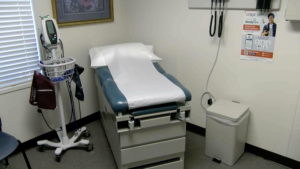EDINBURG – Parvovirus is known for its most distinctive symptom of a “slapped cheek,” a red rash that appears on the faces of children.
UTRGV Associate Professor of Pediatrics, Cristel Escalona said a red rash is not the only symptom that is associated with parvovirus B19.
“Parvovirus is really most famous for the super red, rosy cheeks, but more than anything it would be the runny nose,” Dr. Escalona said. “The cough and the sneezing and it is extremely contagious.”
According to the Centers for Disease Control and Prevention, the virus can be transmitted in respiratory droplets and through pregnancy.
“Because when you’re pregnant, your body does it on purpose it lowers down your immune system to host your baby if you have children who are sick you absolutely do not want them around expecting moms,” Escalona said.
According to the Mayo Clinic, once the red rash is visible on the cheek, it means the disease is no longer spreadable. Although parvovirus is commonly diagnosed in children with a mild effect, the CDC reported there have been cases where adults have been seriously infected and pregnant women who suffered complications that resulted in fetal transfusions or pregnancy loss.
“You really don’t think a lot of the consequences that these illnesses that are really common, but you can see them have bad consequences when you’re doing your training,” she said.
According to the Mayo Clinic, the best way to prevent parvovirus B19 is by washing your hands and avoiding sharing food or drinks.
Reporter – Perla Cortez






